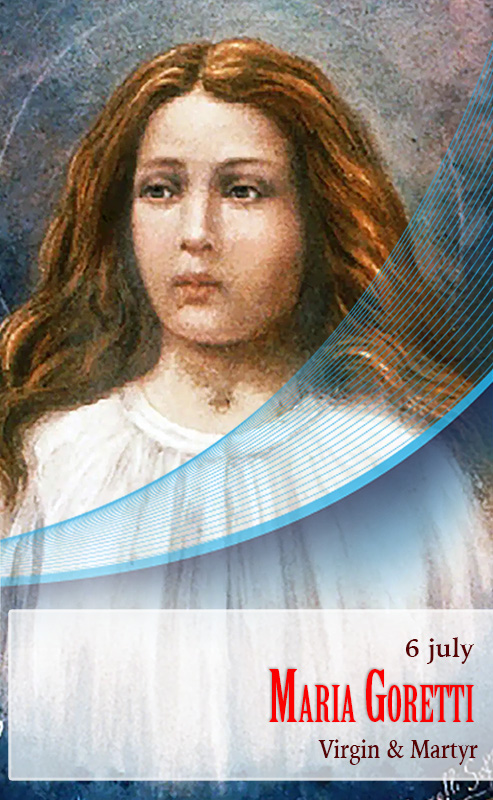SAINT TODAY: Maria Goretti

Born in Corinaldo, Ancona, Italy, on October 16 1890; her farmworker father moved his family to Ferrier di Conca, near Anzio. Her father died of malaria and her mother had to struggle to feed her children.
In 1902 an eighteen-year-old neighbor, Alexander, grabbed her from her steps and tried to rape her. When Maria said that she would rather died than submit, Alexander began stabbing her with a knife.
As she lay in the hospital, she forgave Alexander before she died. Her death didn't end her forgivness, however.
Alexander was captured and sentenced to thirty years. He was unrepentant until he had a dream that he was in a garden. Maria was there and gave him flowers. When he woke, he was a changed man, repenting of his crime and living a reformed life. When he was released after 27 years he went directly to Maria's mother to beg her forgiveness, which she gave. "If my daughter can forgive him, who am I to withold forgiveness," she said.
When Maria was declared a saint in 1950, Alexander was there in the St. Peter's crowd to celebrate her canonization. She was canonized by Pope Pius XII in 1950 for her purity as model for youth.
She is called a martyr because she fought against Alexander's attempts at sexual assault. However, the most important aspect of her story is her forgiveness of her attacker -- her concern for her enemy extending even beyond death. Her feast day is July 6. St. Maria Goretti is the patroness of youth and for the victims of rape.
